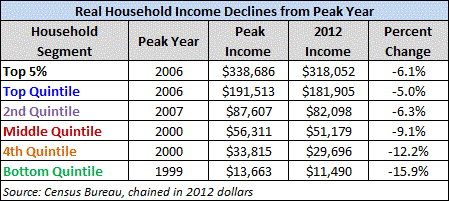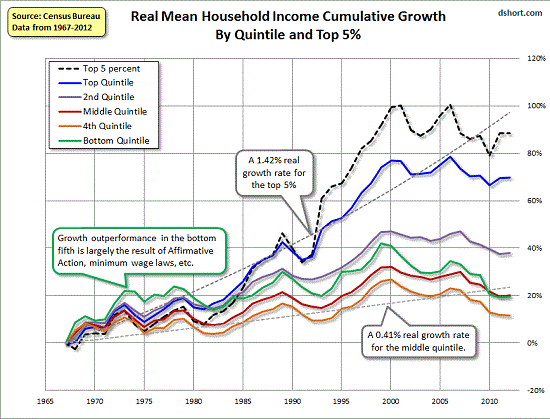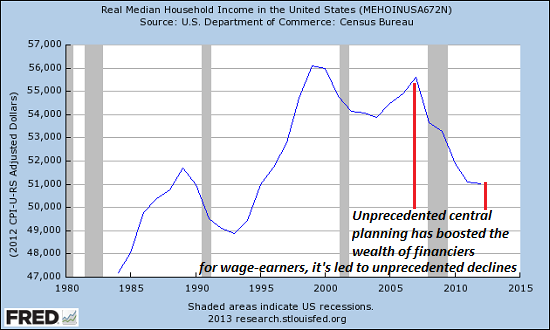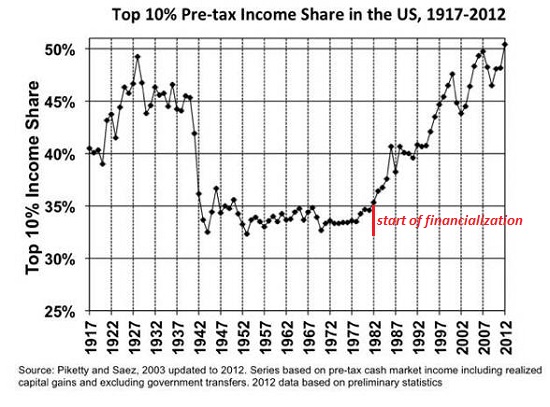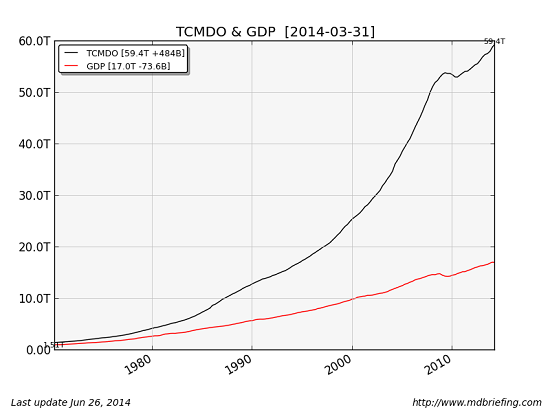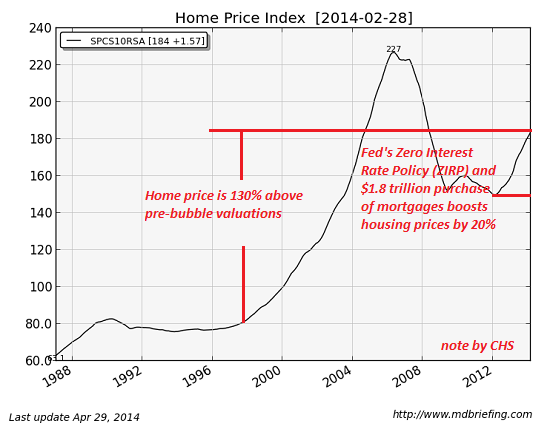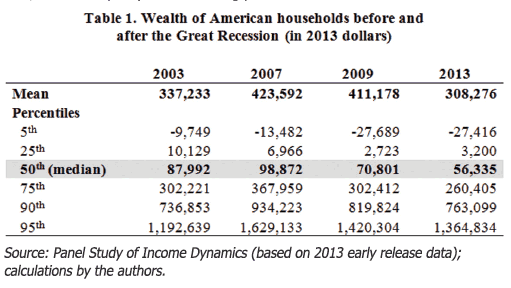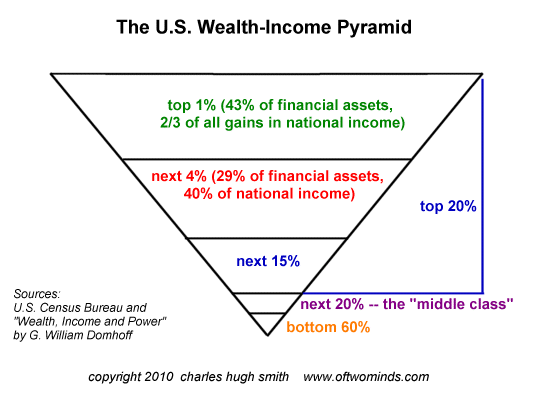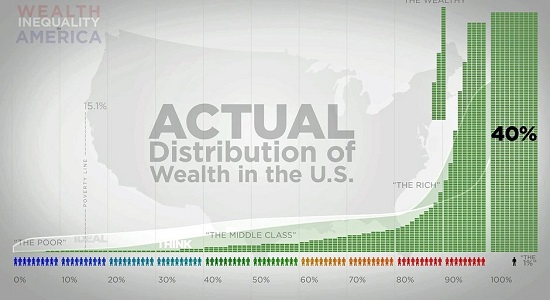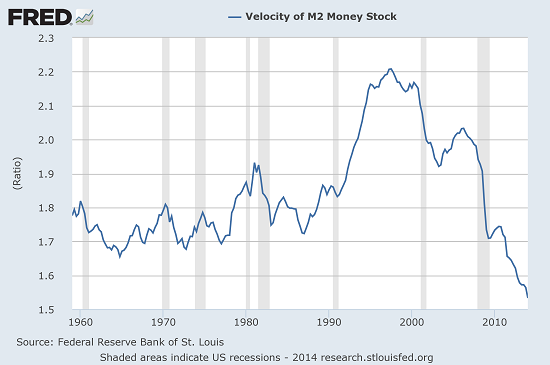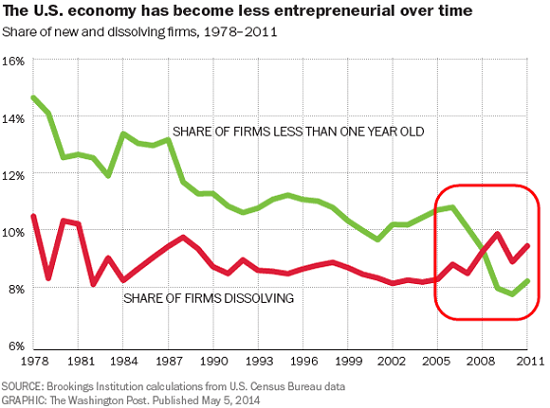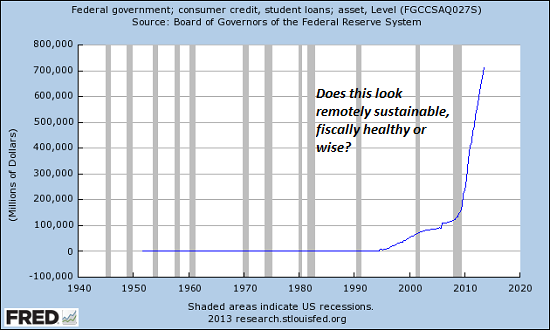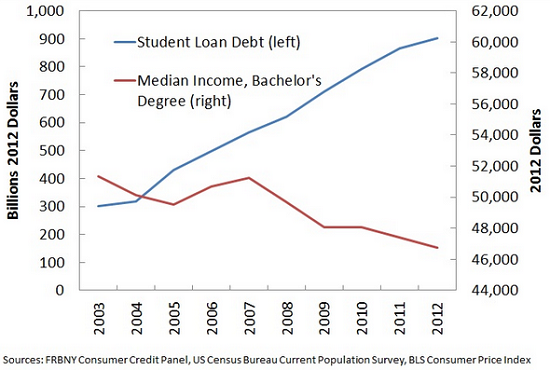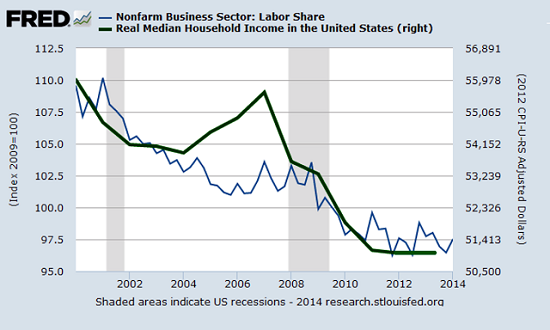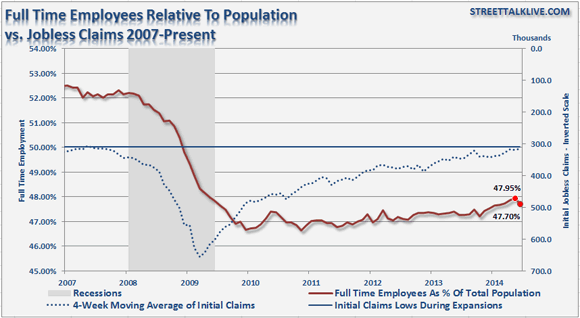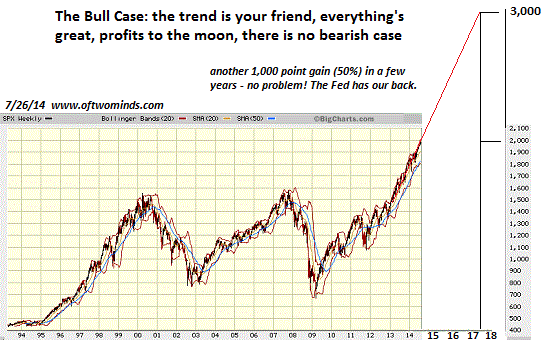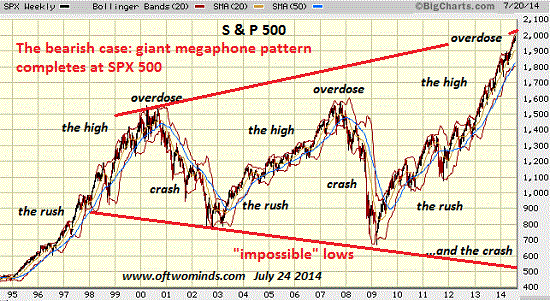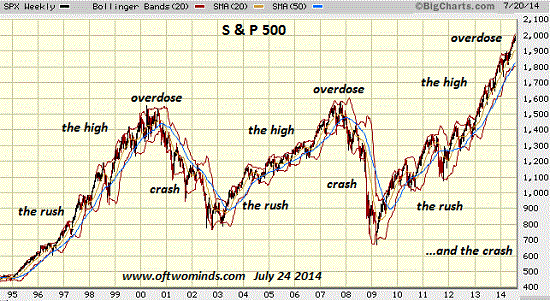Waiting to sell is akin to ignoring the smoke and flames in the crowded theater and hesitating until somebody yells "fire!" to rush for the now-jammed exit.
The stock market is supposed to be a discounting mechanism that anticipates and prices in developments six months out. This discounting mechanism has been broken for so long that many participants seem to have forgotten how to do anything but buy the dips, the Pavlovian response to any decline in stocks that has been rewarded with a food pellet for the past five years.
If the shoe has been dropped, why wait until it hits the floor to sell? But incredibly, that is the overwhelming bias, even after the relatively modest decline of the past week.
Even though the Federal Reserve has made it abundantly clear that it is ending its quantitative easing (QE) bond and mortgage buying program (the Fed has already slashed it from $85 billion a month to $25 billion/month), punters are anticipating a decline in October: in other words, they expect market participants to wait until the shoe hits the floor--i.e. the Fed announces the end of QE--before they dump equities.
Where is the discounting mechanism in this? Since the Fed has announced the end of QE bond purchases, and backed that up by reducing QE by 70%, what sense does it make to wait until the announcement to sell?
Waiting to sell is akin to ignoring the smoke and flames in the crowded theater and hesitating until somebody yells "fire!" to rush for the now-jammed exit. If you want to get trampled to death, this is the optimal strategy. If not, it makes no sense.
The other big news is the unexpected rise in labor costs. The basic narrative here is: the Fed has a free hand in keeping interest rates low and spewing free money for financiers because inflation is (officially) tame, and the lousy job market has strangled wage inflation.
The rise in total labor costs (labor overhead and wages/salaries) throws a wrench into that narrative. As total labor costs (healthcare, pensions, taxes, etc. as well as wages) rise, companies will have to raise prices. (They've already reduced the quality and quantity of goods per package to the point that consumers can't help but notice.)
And voila, inflation's fearful form emerges from the murky swamp of officially sanctioned "low inflation forever." This means the Fed will have to allow interest rates to rise, lest a host of other unintended consequences wreak havoc on what's left of the legitimate economy.
What sense does it make to wait for the inevitable announcement that the Fed funds rate is ticking up? Why sit in your chair buying the dip while the smoke and flames spread, waiting until someone yells "fire" before heading for the exit?
Just as a refresher about how much air there is between the classic technical support of the 200-week moving average and the current discounting mechanism is broken heights:
The theater is filling with smoke; do you really want to wait until the crowd rushes for the blocked exits to sell? Why not actually use the discounting mechanism and sell now?
Sadly, there won't be much oxygen left for the buy the dip true believers who remain in their seats, mechanically hitting the "buy" button.
Get a Job, Build a Real Career and Defy a Bewildering Economy(Kindle, $9.95)(print, $20)
 Are you like me? Ever since my first summer job decades ago, I've been chasing financial security. Not win-the-lottery, Bill Gates riches (although it would be nice!), but simply a feeling of financial control. I want my financial worries to if not disappear at least be manageable and comprehensible.
Are you like me? Ever since my first summer job decades ago, I've been chasing financial security. Not win-the-lottery, Bill Gates riches (although it would be nice!), but simply a feeling of financial control. I want my financial worries to if not disappear at least be manageable and comprehensible.
And like most of you, the way I've moved toward my goal has always hinged not just on having a job but a career.
You don't have to be a financial blogger to know that "having a job" and "having a career" do not mean the same thing today as they did when I first started swinging a hammer for a paycheck.
Even the basic concept "getting a job" has changed so radically that jobs--getting and keeping them, and the perceived lack of them--is the number one financial topic among friends, family and for that matter, complete strangers.
So I sat down and wrote this book: Get a Job, Build a Real Career and Defy a Bewildering Economy.
It details everything I've verified about employment and the economy, and lays out an action plan to get you employed.
I am proud of this book. It is the culmination of both my practical work experiences and my financial analysis, and it is a useful, practical, and clarifying read.
Test drive the first section and see for yourself. Kindle, $9.95 print, $20
"I want to thank you for creating your book Get a Job, Build a Real Career and Defy a Bewildering Economy. It is rare to find a person with a mind like yours, who can take a holistic systems view of things without being captured by specific perspectives or agendas. Your contribution to humanity is much appreciated."
Laura Y.
Gordon Long and I discuss The New Nature of Work: Jobs, Occupations & Careers (25 minutes, YouTube)
NOTE: Contributions/subscriptions are acknowledged in the order received. Your name and email remain confidential and will not be given to any other individual, company or agency.
| Thank you, David P. ($50), for your delightfully generous contribution to this site -- I am greatly honored by your steadfast support and readership. | | Thank you, Mark H. ($10), for your most generous contribution to this site -- I am greatly honored by your support and readership. |
Read more...

 Are you like me? Ever since my first summer job decades ago, I've been chasing financial security. Not win-the-lottery, Bill Gates riches (although it would be nice!), but simply a feeling of financial control. I want my financial worries to if not disappear at least be manageable and comprehensible.
Are you like me? Ever since my first summer job decades ago, I've been chasing financial security. Not win-the-lottery, Bill Gates riches (although it would be nice!), but simply a feeling of financial control. I want my financial worries to if not disappear at least be manageable and comprehensible.



















